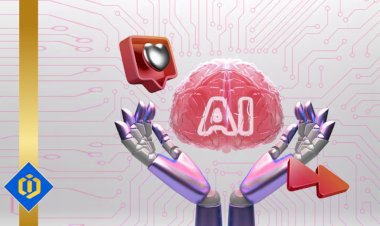United States Central Bank Doesn’t Plan to Have Any State Cryptocurrency
The reports imply that the United States central bank board governor is still not interested in the ideas of central bank digital currencies. A year has passed from the first Bitcoin value...

The reports imply that the United States central bank board governor is still not interested in the ideas of central bank digital currencies.
A year has passed from the first Bitcoin value explosion and offering cryptocurrencies to the mainstream; many believe that the future of cryptocurrency will become clear soon. Bitcoin is, in fact, a cryptocurrency and global payment system which has not yet been recognized by any country. Cryptocurrency, itself, is a kind of currency which is created through cryptography technology.
Considering the emergence of numerous companies which advertise and promote Blockchain-based capitals, it seems that administering such plan is not farfetched; however, Federal Reserve (United States Central Bank) has negatively responded to this plan. Despite the number of followers who promote cryptocurrency benefits, there is still a long way for the financial institutions to decide to include it in the market.
In fact, Blockchain which is an information recording and reporting system and has an encrypted data structure is the main technology of digital currency.
Avoiding financial crimes
As you know, to enforce the regulations and avoid financial crimes, such as drug trafficking, terrorism, and money laundry, the police should be able to diagnose financial transaction between parties (sender and receiver). If there is the possibility for the bank to legally create a blockchain-based permissionless cryptocurrency, identifying people who are involved in the transaction will not be easy.
In this condition, it will not be rational for the central banks which are controlled by concentrated states to develop a cryptocurrency by their own names. By the way, key features of cryptocurrency are considered a red flag for the central banks.
Permissionless or public cryptocurrency is a bed which enables all users to make their personal address and interact with the network through selecting the transaction and recording items in the general ledger.
The digital currency of the central bank might not be a decentralized or peer-to-peer financial cycle system; rather, it is in the form of a centrally managed electronic money. So, some researchers believe that creating “Fedcoin” or any other cryptocurrency on the part of the central bank will be naïve and crude. The idea of creating a digital money called “Fedcoin” offered by the United States Federal Bank and controlled by the central bank, was suggested in 2015 by one of the head banks.
According to a report by Quarts, on December 27, in Digital Decoding Currency Conference held in San Francisco in May 2018, Lael Brainard, Federal Reserve Board governor, criticized cryptocurrency plan and spoke about its lack of transparency. He, who has stated Blockchain as one of the most significant inventions of this decade technology, pointed to costly volatility of cryptocurrencies like Bitcoin.
Accordingly, he told that central bank digital currencies plan, as virtual currency with high instability and unreliability will not be useful and efficient. Therefore, it will not have a useful and beneficial performance as a Medium of Exchange (MoE) and Store of Value (SoV).
MoE refers to a value which plays the role of medium in forming exchanges and transaction. SoV is a performance of an asset which can be stored, retrieved or exchanged in the future and very much efficient while doing such processes. Money, currency or goods such as gold, are assumed as SoV tools.
In fact, Central Bank Digital Currencies, CBDCs, are digital forms of fiat money or credit money which don’t have inherent value and their value is determined by the government order.
Moreover, he stated that cryptocurrencies are highly vulnerable to hacking and money laundering and it is very difficult for many financial institutions to deal with such capitals.
However, virtual currency distribution technology had been here for a long time before Blockchain creation.
The head of the International Monetary Fund: all banks should start offering a cryptocurrency
Finally, Brainard told that increasing concerns about the manner of the effect of national digital currencies on retail banks which give various loans to the public is a factor that Federal Reserve takes central bank digital currency plan a bad opinion. Of course, it seems that Brainard, who is a critic of central bank digital currencies too, is influenced by Blockchain technology and its ability to improve efficiency as well as the transparency of different trade processes.
However, Christine Lagarde, head of International Monetary Fund, IMF, who had supported central bank digital currencies plan in his lecture in Fentech festival in May in Singapore, attracted the media.
IMF, the supervisor of the international monetary system, is considered one of the most valid resources of evaluation and prediction of the world economic state.
Christian Lagarde remarked in his speech that all banks should consider offering a cryptocurrency. Furthermore, he mentioned some benefits of national cryptocurrencies such as security and customer protection and told that this plan can remove security problems and financial inclusion.
While the United States Federal Reserve is not interested in developing its own cryptocurrency, it is possible for the central banks in other states to offer their own digital currencies. Lagarde noted that all financial institutions should take implementing their own cryptocurrency into account seriously. He, who is an experiences French lawyer and politician, introduced Blockchain technology safe, cheap and semi-anonymous and said that central banks can benefit cryptocurrency as they inject money to the digital economy.
Moreover, he added that although a high percentage of the world population has not access to modern banking services yet, digital money can promote and improve financial and economic inclusion.
Even Kevin Warsh, former Federal Reserve governor of the United States who was the candidate for heading Federal Reserve is among those who are in favor of this plan. He told in an interview with New York Times in the beginning of this year that he will allocate some resources to develop national currency.
According to Quarts report, Fedcoin currency which is based on Blockchain is capable of transparency and efficiency improvement of United States Dollar and can enable Federal Reserve to access to non-contractual tools.
Aleksander Berentse and Fabian Schar, the researchers at Federal St. Louis, studied and investigated this plan in 2018 and concluded that each central bank can easily create its own digital currency. They believe that as cryptocurrencies key features are considered a red flag for the central banks, they will not be published on public networks.
Cryptocurrency is a novel technology, and there are many operational risks in its way.




















